How does Recreational Cannabis Work in Canada?
The Cannabis Act officially came into effect on October 17th 2018, making recreational cannabis legal in Canada.
Now, both medical and recreational cannabis are legal in Canada!
So how does recreational cannabis work in Canada?
We are here to help explain exactly how recreational cannabis works in Canada and to answer any other questions that you may have.
Federal, Provincial and Municipal Governments Share Duties
In Canada, recreational cannabis is managed by three levels of government: Federal, Provincial and Municipal.
We will quickly break down what the key roles are for each of these forms of government, which should provide you with a better understanding about how Canada’s recreational cannabis system works.
Federal
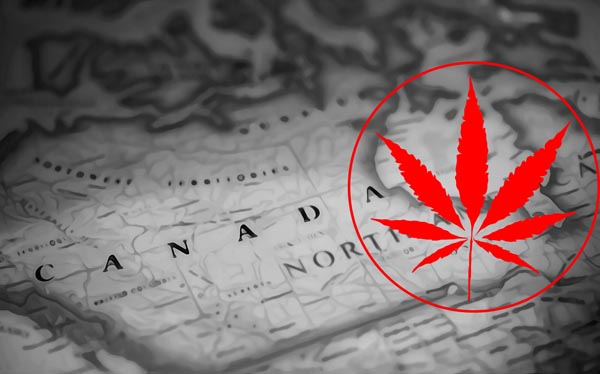
The federal government of Canada decided to share the responsibilities of recreational cannabis with both the provinces/territories and municipalities, this is unlike medical cannabis which is exclusively run by the federal government.
As per the Department of Justice website, the federal government’s roles and responsibilities include:
- strict requirements for producers who grow and manufacture cannabis
- industry-wide rules and standards, including:
- types of cannabis products available for sale
- packaging and labelling requirements for products
- standardized serving sizes and potency
- prohibitions on the use of certain ingredients
- good production practices
- tracking requirements of cannabis from seed to sale to keep it out of the illegal market
- restrictions on promotional activities
Provincial and Territorial
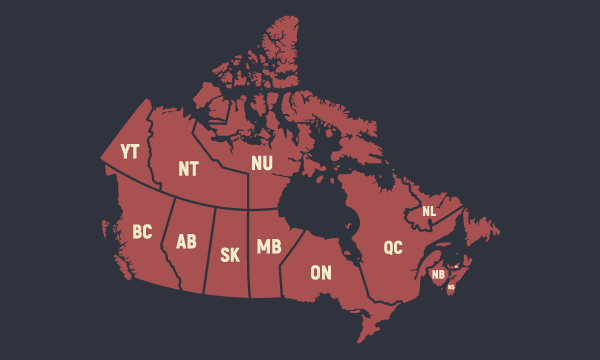 As per the The Government of Canada website, the federal government’s roles and responsibilities include:
As per the The Government of Canada website, the federal government’s roles and responsibilities include:
The Cannabis Act came into force on October 17, 2018. Provinces and territories are responsible for determining how cannabis is distributed and sold within their jurisdictions.
They set rules around:
- how cannabis can be sold
- where stores may be located
- how stores must be operated
- who is allowed to sell cannabis
Provinces and territories also have the flexibility to set added restrictions, including:
- Lowering possession limits
- increasing the minimum age
- restricting where cannabis may be used in public
- setting added requirements on personal cultivation
Each province and territory has its own excise stamp for legal cannabis products (except for products with no THC).
You are responsible for knowing what is legal in the province or territory where you live or visit.
To learn more about the specific rules and regulations of each individual province, visit this Health Canada web page.
Municipal Government
Every municipality has the power to make specific decisions about the rules and regulations of recreational cannabis.
The municipal governments can control the following if they choose to do so, or they can follow the rules and regulations created by their province:
- Zoning by-laws
- Retail locations
- Public consumption
- Business licences
- Where retail stores can be located
We suggest checking with the municipality of interest by going to their website to see if they have created any by-laws in regard to recreational cannabis.
Also, indigenous communities may have different rules and regulations in place so please check these out too if applicable.
As you can see, there are many layers of government involved in recreational cannabis in Canada. These bureaucratic layers, combined with the fact that there are so many differences between regions and provinces, have caused the public to be confused about the entire process of recreational cannabis.
These factors have contributed to a relatively slow start for the recreational cannabis industry in Canada.
How Recreational Cannabis Purchasing works in Canada
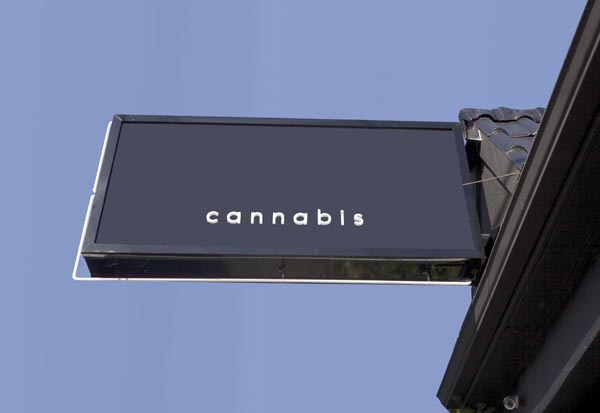
Where you can purchase cannabis and how old you have to be in order to purchase cannabis varies from province to province.
Depending on which province you are in, you can make purchases of cannabis at either private licensed stores or government-operated stores. All provinces and territories also allow recreational cannabis sales via licensed online retailers or by phone.
If you live in Alberta the purchasing age is 18, while all other provinces and territories have a purchasing age of 19 other than Quebec which changed the age requirement to 21 as of January 1st, 2020.
For example in BC, you can either buy recreational cannabis from licensed brick and mortar retailers, which include provincial and privately run retail stores, or you can order online from the BC Government's online store. In Alberta you can only purchase recreational cannabis from private retail stores or online through the provincial government’s online store.
As you can see, where you can buy cannabis will differ depending on what province you are in.
To learn more about where you can purchase recreational cannabis in each province, as well as more specific information on each individual province, visit this Health Canada page.
What Types of Recreational Cannabis Products are Sold?
Products currently available for sale include:
- Dried cannabis flower (no greater than 30% THC)
- Pre-rolls (or “joints”)
- Cannabis oils (no more than 3% THC by volume)
- Cannabis seeds
- Cannabis plants
- Edibles
- Topicals
- Extracts
The last three product types are in high demand and became legal to be sold in Canada, as of October 17th, 2019.
As per the Government of Canada’s website:
On October 17, 2019, the Cannabis Regulations were updated to establish rules for the legal production and sale of three new classes of cannabis:
- edible cannabis
- cannabis extracts
- cannabis topicals
As required by the Cannabis Act, the amended regulations came into force on October 17, 2019. However, it will take time, after that date, before new cannabis products become available for purchase. Adult consumers can expect new products to appear gradually in physical and online stores beginning in mid-December 2019.
This “Final Regulations” document from the Government of Canada explains these new regulations:
Recreational Cannabis Allowances
Since the Cannabis Act came into effect it has become legal for age of majority Canadians to carry recreational cannabis in public, but the question on many people’s mind is “How much cannabis is too much?”
The Cannabis Act sets the maximum amount a citizen can carry with them at 30 grams. Thankfully the Canadian government has given concise guidelines for dried cannabis, concentrates, tinctures, edibles and even seeds.
In many cases, Canadians using cannabis for medical purposes are entitled to higher carrying limits. To learn more, we invite you to visit our Kanteeva article “How does Medical Cannabis work in Canada?”
Below is a chart that breaks down the legal carrying limits for dried cannabis and the equivalent in all other forms.
Equivalent Amounts Chart (via Cox and Palmer Law):
|
Class of Cannabis |
Quantity that is equivalent to 1g of dried cannabis |
Legal maximum amount one can carry of these products |
|
Dried Cannabis |
1g |
30g |
|
Fresh Cannabis |
5g |
150g |
|
Solids containing cannabis |
15g |
450g |
|
Non-solids containing cannabis |
70g |
2100g |
|
Cannabis solid concentrates |
0.25g |
7.5g |
|
Cannabis non-solid concentrates |
0.25g |
7.5g |
|
Cannabis plant seeds |
1 seed |
30 seeds |
Where can Recreational Cannabis be Consumed in Public?
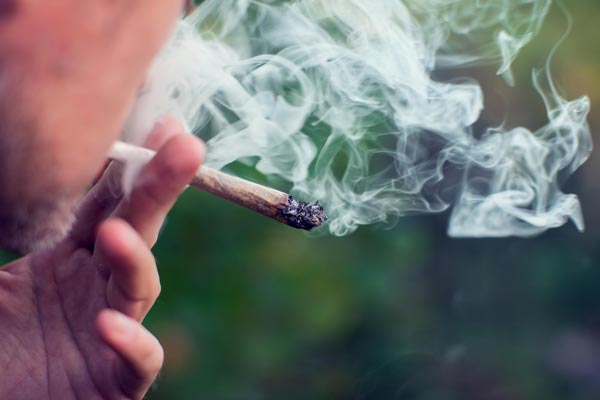
Where consumption of recreational cannabis can take place is ultimately up to each individual municipality, if they choose to take on this responsibility. If they decide not to be involved, the municipality will rely on the rules and regulations set by the province they reside in.
Check with your local municipality to see if they have created any cannabis by-laws and also check with your provincial cannabis rules and regulations for more information about where you can consume cannabis.
Generally speaking, no-smoking areas and places where minors commonly gather will dictate where you can and cannot smoke cannabis in most areas of Canada.
Interestingly enough, you can smoke cannabis outside at some Canadian airports, like the Vancouver International Airport, in the designated cannabis smoking areas!
Rules Related to Personal Cultivation and Harvest for Personal Use
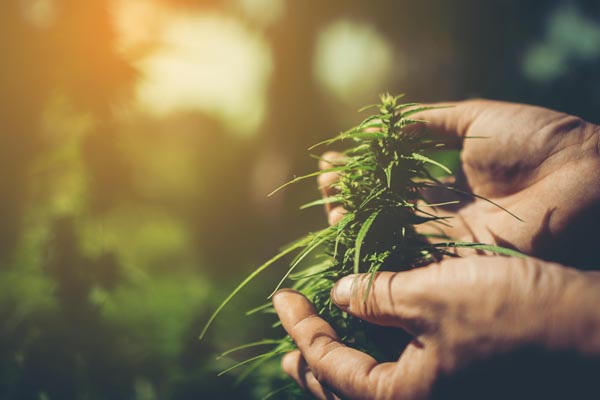
The Cannabis Act allows Canadians in every province and territory (except Manitoba and Quebec) who are over the age of 19 (or 18 in Alberta) to cultivate cannabis at home.
Manitoba and Quebec have set laws that see at-home cultivation as a provincial offence that incurs fines.
You as a Canadian citizen are allowed to grow up to 4 plants; this restriction applies to the entire household, meaning that if you have three adults in a house who wish to grow their own cannabis there is a maximum of 4 plants allowed on the property. You can only rear plants from legally purchased seeds or plants and they must come from a licensed producer or as a gift from someone.
When it comes to where you are allowed to grow your cannabis plants, the laws are different from province to province.
To learn more about the specific laws regulating the cultivation of recreational cannabis in each province or territory, visit this Health Canada web page.
Cultivation within rental units and condominiums is restricted from municipality to municipality. It is worth checking your local laws in regards to this scenario, however almost all provinces have passed laws allowing landlords to ban recreational cultivation by tenants.
While you may think that you are entitled to your entire cannabis harvest, some provinces have set limits on how much can be legally stored within your home. For example, British Columbia has set the limit for the quantity harvested and stored within the home at 1000 grams, while Nunavut and Quebec have set home storage at 150 grams. All other provinces have no maximum limit in regards to household storage.
Can you Share your Harvest?
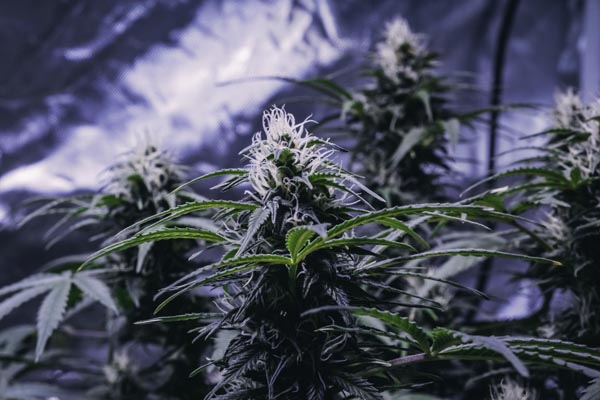
When it comes to sharing cannabis plants or harvests with others, you are allowed to share, however there are a few restrictions:
PLANTS
- You can only share up to four plants with another adult at a time
- The plants CANNOT have entered their flowering phase, meaning they cannot be producing bud at the time of sharing
- You cannot charge for these plants, individuals cannot legally sell cannabis plants
FLOWER
- Maximum amount shared at a time sits at the federal limit of 30 grams
- This sharing MUST remain sharing; “selling” or “trading” violates the law
Challenges to Making Informed Purchases in the Storefront
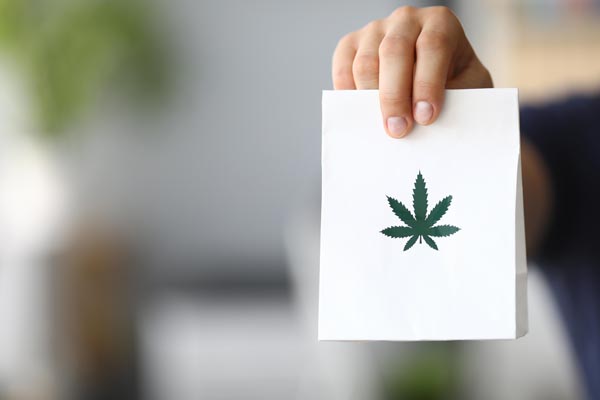
Since the implementation of the Cannabis Act, the purchasing of cannabis for recreational purposes has become quite easy. As long as there is a licensed storefront in your area, all you need to do as a legal cannabis consumer is to bring government issued photo I.D. that confirms your age and identity and you are ready to purchase recreational cannabis!
Compared to the “grey cannabis market” where your budtender was able to discuss the strain and its effects, the person behind the counter in a licensed dispensary is disallowed from providing some very crucial information to you, the consumer.
Under the Cannabis Act, licensed recreational storefronts are not allowed to offer testimonials/video advertisements or endorsements/recommendations. The overarching flaw in this particular regulation is that it leaves the consumer unable to ask very important questions before purchasing recreational cannabis.
For example, if you want to ask the person behind the counter “What strains they have available in stock that are similar to Blue Dream?” or “What is an effective strain for managing the symptoms of chronic pain?” the “budtender” is required, by law, to not answer your questions as it would directly violate the Cannabis Act.
What about Medical Cannabis?
The medical cannabis system is different than the recreational cannabis system in Canada.
To learn more, we invite you to read our Kanteeva article, “How does Medical Cannabis Work in Canada?”
Recreational Cannabis and You
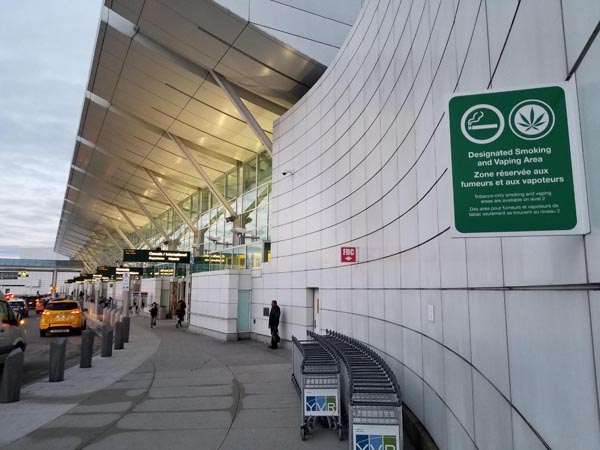
Canada’s recreational cannabis system is far from perfect, but it is a world leading start and we here at Kanteeva look forward to seeing it develop further in the future.
Due to all of the confusion and the many differences in rules and regulations across Canada, remember to check with your provincial and municipal governments in order to be certain how these rules apply to you and recreational cannabis.
As always, we want to keep you informed, so we invite you to join our Kanteeva community for updates and to learn more about medical cannabis.
Have you used recreational cannabis for medical purposes in Canada? How was your experience?
We would love to hear from you so please make comments or ask questions below.
Learn. Share. Connect.